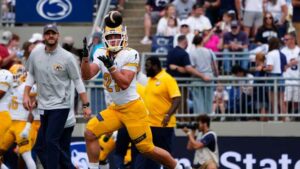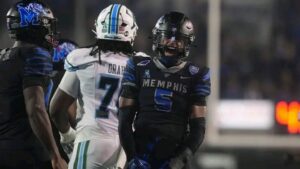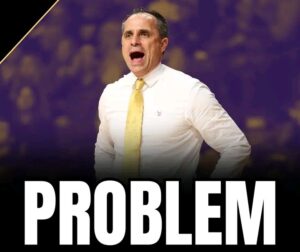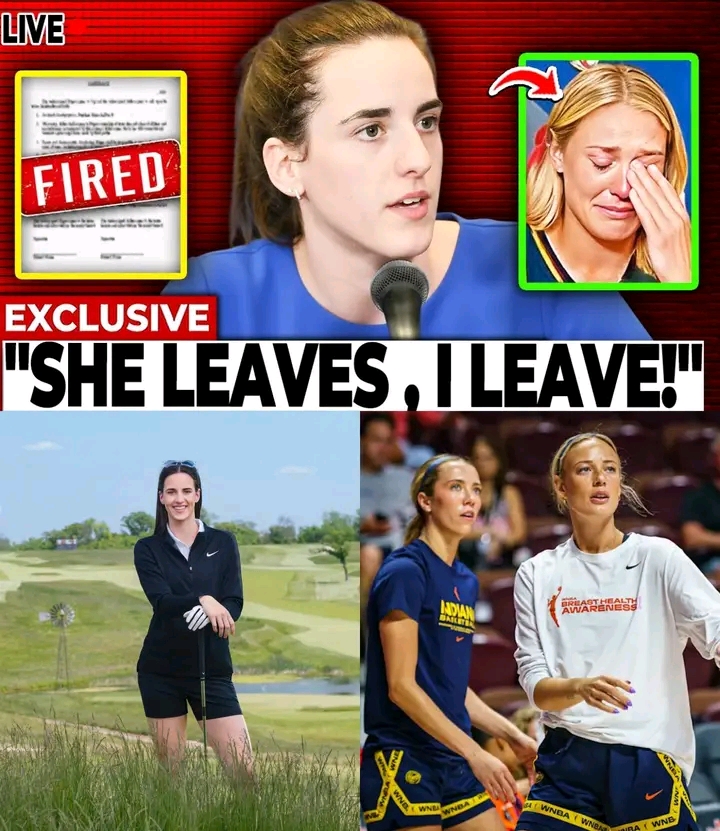
The $3 Million Question: How Sophie Cunningham’s Offer from a Rival League Could Destroy the WNBA’s Golden The WNBA’s boom and the impending financial betrayal that could put an end to it are known as the Golden Paradox. There has never been a more electrifying atmosphere surrounding the WNBA. With record television ratings, merchandise flying off shelves, and sold-out arenas across the nation, the “Caitlin Clark Effect” has turned the league from a niche market into a global sports phenomenon. For the first time in the league’s 27-year existence, the future seemed both secure and incredibly limitless.
However, this golden age is currently on the verge of collapse, not because of a lack of supporters but rather because of a startling lack of leadership and a pervasive financial inequality. Sophie Cunningham, a guard for the Indiana Fever, revealed the WNBA’s self-inflicted wounds in a statement that exposed the harsh reality. “If people are going to be paying you multi-million dollar deals, why would you not listen?” was Cunningham’s response when questioned about Project B, the recently announced rival league.
The WNBA’s existential crisis is summed up in that one sentence. In addition to prohibiting players from competing elsewhere during the offseason, the league currently demands player loyalty and exclusivity while underpaying them a small portion of their increasing market value. When weighed against generational wealth, loyalty is worthless. The math is straightforward, harsh, and completely unforgiving.
The Financial Security Math The numbers must be examined in order to comprehend the seriousness of Cunningham’s position. Sophie Cunningham, a starting guard and vital floor-spacer for the Indiana Fever, a team that is now crucial to the league’s success, makes less than $200,000 a year in the WNBA. Her role is to assist Caitlin Clark, the league’s biggest star, in generating millions of dollars in new revenue for the WNBA. However, the fundamental financial stability that a professional athlete in any other major American league would anticipate is not even guaranteed by her contract.
According to Cunningham, she wants to make enough money on her next contract to purchase a home. After years of devoted service to a developing sport, this is a request for basic financial stability rather than ostentatious luxury. The Project B, a new professional women’s basketball league, is reportedly offering contracts worth $2 to $3 million for a season that runs from November to April—exactly the WNBA’s customary offseason—after making a wise decision to change course after failing to challenge the NBA.
As a result, the league is asking players to forgo potentially life-altering compensation—ten to fifteen times their present salary—in exchange for an ambiguous promise of future growth in a system that has traditionally failed to pay players a livable income commensurate with their abilities. Instead of choosing between two basketball chances, Cunningham and many other players in the league now had to choose between a respectable but financially risky career path and guaranteed generational fortune. The league’s argument for exclusivity collapses when the price of exclusivity is essentially financial security.
The Golden Goose is devastated The most cruel irony of all is the timing of this threat. Finally, Caitlin Clark is the WNBA’s Golden Goose. The Indiana Fever went from being an afterthought to the league’s main attraction during her rookie season. Millions of people watched her games, and there was an incredible demand for tickets. Unquestionably, this attention validated decades of struggle for recognition by highlighting the huge and unfulfilled need for elite women’s basketball. Nevertheless, the league was unable to convert that quick commercial success into prompt, substantial player compensation.
The Fever now face the loss of important members of their supporting cast as they attempt to build a dynasty around Clark and profit from their success. Kelsey Mitchell, a star scorer, and Sophie Cunningham are both free agents. In particular, Cunningham is the ideal match for Clark because he is a knockdown three-point shooter who doesn’t need to control the ball and a tough defender. She provides the necessary depth and experience to make the Fever competitive.
However, the Fever are unable to offer her anything close to what Project B is offering due to the WNBA’s strict salary cap structure. All Indiana can do is hope that Cunningham will put her team’s and Clark’s loyalty ahead of her own financial future. The chemistry that drove the Fever’s ascent vanishes if they lose Mitchell, Cunningham, or both. The offense stalls, Clark may be surrounded by replacement-level talent, and the millions of casual spectators who came to watch thrilling basketball will eventually leave. Due to its inability to hold onto the core supporting cast required to maintain the product, the WNBA’s greatest marketing opportunity to date is in danger of being squandered.
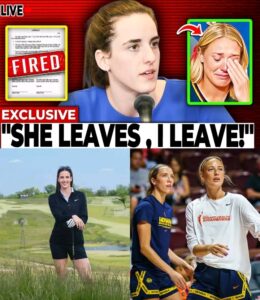
The Deadlock and the Threat of Lockout The impasse in the Collective Bargaining Agreement (CBA) negotiations is making the situation worse. Insider reports state that there has been “hardly any movement” in the current agreement, which is scheduled to expire in October, less than a year from now. The last meeting between the WNBA leaders and the WNBPA reportedly took place two weeks before Cunningham’s interview, indicating a concerning lack of urgency and engagement.
This is a ticking time bomb rather than merely procedural friction. The league may face a disastrous lockout if the WNBA and the Players Association are unable to reach an agreement. A league that “goes dark,” meaning it has no games, no money, and no publicity, gives Project B all the leverage. The established infrastructure and history of the WNBA would then become a thing of the past as the rival league could recruit players with guaranteed contracts. The entire balance of power would shift, with Project B becoming the primary employer and the WNBA becoming only a side gig.
This is a total leadership failure. Before this threat materialized, the league had a window of opportunity to secure long-term, more competitive contracts for its players. Before the current agreement expired, it had an opportunity to expedite CBA talks. It lost both chances, and the WNBA establishment’s silence in the face of Project B says it all: either they are severely underestimating the threat, or—perhaps more concerning—they just lack the financial means to compete.
The Cost of Principles and the Story’s Failure This possible exodus has ramifications that go well beyond basketball. For many years, WNBA players have vigorously positioned themselves as supporters of women’s sports, urging supporters to support the league not only as a source of entertainment but also as a social and moral cause—a group effort to create something greater than themselves.
However, that compelling story will instantly fall apart if players start departing for Project B. How can athletes ask fans to support a “cause” while pursuing financial gain from a new, unproven startup that has no regard for the long-term viability of the sport? After years of supporting the league against detractors, the supporters will feel deceived, irritated, and eventually indifferent. Instead of blaming Sophie Cunningham for securing her future, they will accuse the WNBA of being incompetent and of mishandling their eventual explosive growth.
This creates a disastrous precedent. Project B only needs to sign a dozen or two high-value players, such as Mitchell and Cunningham, to destroy the competitive balance of the WNBA product and gut several teams. It doesn’t need to sign every superstar. The floodgates will open once a major player departs and is paid $3 million. Other players will see that the immediate, palpable reality of generational wealth elsewhere has supplanted the WNBA’s claim that “growth takes time.”
After 27 arduous years of struggle, the WNBA finally attained mainstream relevance. The league is now in danger of collapsing because of a deep and persistent failure to translate that attention into player compensation that is commensurate. Sophie Cunningham’s statement is a desperate plea for fundamental, sensible business practices rather than an attack. Athletes in the WNBA are being asked to risk their short career window on institutional loyalty.
When faced with the possibility of a career-ending injury, a professional athlete must make a difficult decision between a $200,000 professional salary and a $3 million lifeline that guarantees their entire future. The true question is not whether Sophie Cunningham will accept the Project B funding, but rather whether the WNBA will be able to continue when dozens of players make the same, perfectly reasonable choice.


